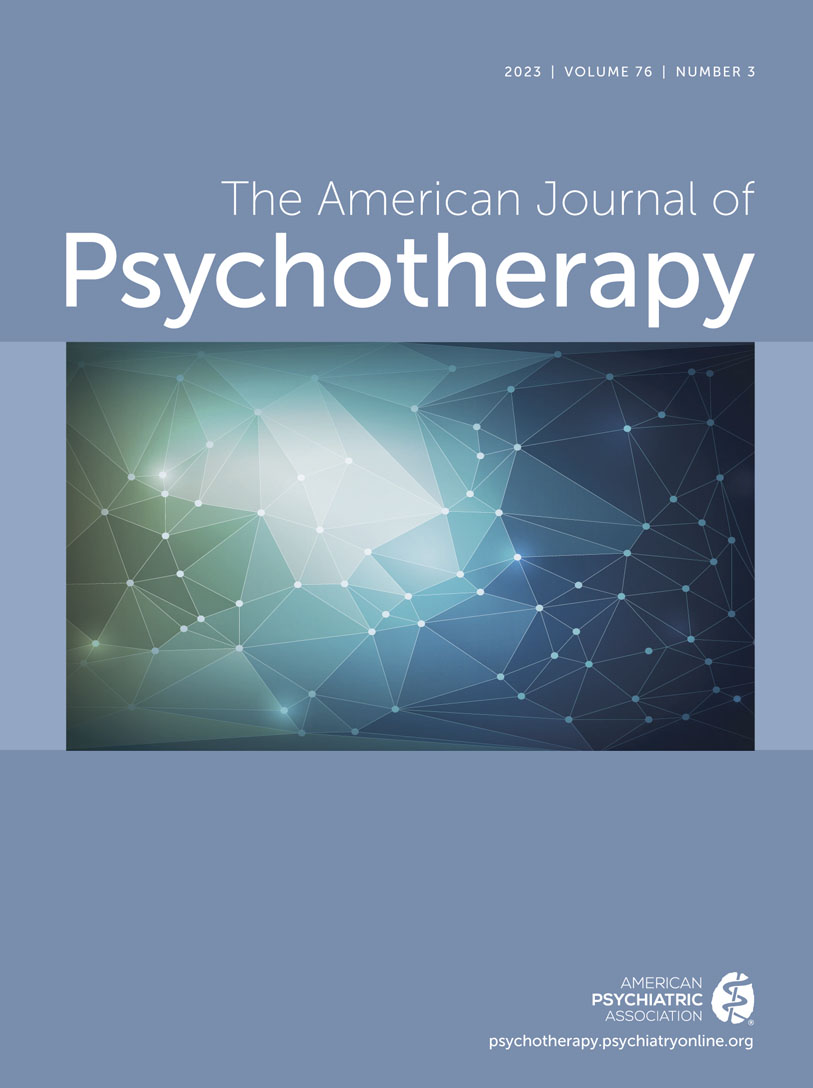American Journal of Psychotherapy
- Volume 58
- Number 2
- April 2004
Articles
Publication date: 01 April 2004
Pages139–149From ancient times on, our dream processes were thought to be the uncovering of unknown connections. It may be that there is some basis to this belief, and that dreams truly represent a mirror of our unconscious and not only random processes moving along ...
https://doi.org/10.1176/appi.psychotherapy.2004.58.2.139Publication date: 01 April 2004
Pages150–161Residual symptoms are increasingly becoming recognized as an important problem in the treatment of major depression. It is unclear which individuals are more likely to suffer from residual symptoms following treatment. This study investigated the role of ...
https://doi.org/10.1176/appi.psychotherapy.2004.58.2.150Publication date: 01 April 2004
Pages162–173A paradigm for treating delusional beliefs is offered here. Certain delusional beliefs are analyzed as the result of an underlying affective disorder that masquerades as a thought problem. Through clinical illustration the author demonstrates that the ...
https://doi.org/10.1176/appi.psychotherapy.2004.58.2.162Publication date: 01 April 2004
Pages174–185The paper argues that (1) full recognition of men’s losses in divorce is an essential prerequisite to offering divorced men the emotional help they may need and (2) that since men mourn the losses of divorce differently from women, counselors should take ...
https://doi.org/10.1176/appi.psychotherapy.2004.58.2.174Publication date: 01 April 2004
Pages209–219The paper begins by examining The Seeker, a novel by Allen Wheelis, that addresses “the aims and implication[s] of psychological treatment.” In his novel Wheelis dramatizes two questions: “Can psychoanalysis enable the person being analyzed to live life ...
https://doi.org/10.1176/appi.psychotherapy.2004.58.2.209Publication date: 01 April 2004
Pages220–237This paper presents an overview of the adaptation of Interpersonal Psychotherapy for depressed adolescents (IPT-A) to be delivered in a group format (IPT-AG) for the treatment of depressed, nonbipolar outpatient adolescents. The model has been modified to ...
https://doi.org/10.1176/appi.psychotherapy.2004.58.2.220Book Review
Film Review
Past Issues
View Issues Archive
Vol. 77 | No. 2

Vol. 77 | No. 1

Vol. 76 | No. 4
